Compliance and Regulations
NZML can liaise with external parties to ensure that vessels are up to compliance standards. NZML can oversee repairs and maintenance work for intermediate and full surveys to meet maritime standards. NZML can also arrange independent audits in order to meet the clients’ specific needs utilising local relationships.
Keeping up to date in the ever-changing landscape of maritime regulations is a key to meeting strict codes of practice within safe ship management regulations.
NZML can ensure compliance with:
Marine Regulations
What is the new Biofouling regulation?
From May 2018, all commercial and recreational vessels arriving in New Zealand will need to have a clean hull to protect New Zealand’s marine environment from biofouling. Marine pests and diseases introduced to NZ on vessel hulls are a serious threat to our water resources.
What does the biofouling marine regulation mean?
With the new regulations through the Ministry for Primary Industries, vessels must arrive in New Zealand with a ‘clean hull’ this means:
- Vessels staying up to 20 days and only visiting designated ports (places of first arrival) will be allowed a slight amount of biofouling (slime layer, goose barnacles, and up to 5% cover of early biofouling depending on the area fouled).
- Vessels staying longer than 20 days or visiting places that aren't places of first arrival will only be allowed a slime layer and goose barnacles.
The clean hull thresholds are not being enforced until May 2018. However, MPI can take action now on vessels that pose a severe biofouling risk.
What you must do as part of the biofouling regulation:
If you're the operator of a commercial vessel coming to New Zealand, to meet the MPI biofouling regulations you need to:
- Do continual maintenance on the hull and niche areas using best practice.
- Clean hull and niche areas before you arrive in New Zealand if the vessel has been stationary for periods of time.
To demonstrate best practice, MPI recommends you create and follow a biofouling management plan and record your maintenance activities in a log book.
If your vessel requires cleaning before arrival in New Zealand, you'll need to keep documented evidence of cleaning and a quarantine inspector may ask you for it.
Find out more about biofouling and commercial vessels on the MPI website.
What happens if the vessel doesn’t meet biofouling standards?
If MPI see your vessel as likely to have more biofouling than the allowed threshold, they will inspect the vessels documents for:
- Biofouling maintenance records
- Operational history
In some cases, MPI may have divers inspect the vessel underwater.
If your vessel has too much biofouling MPI may:
- Restrict entry of your vessel to New Zealand
- Reduce your New Zealand itinerary
- Ask you to clean your vessel offshore using an approved treatment or within 24 hours by an approved provider in New Zealand.
Find out more on the Biofouling Management page on Ministry for Primary Industries.
For information on how to clean your boat, particularly your hull and applying antifouling paint, visit the MPI website page on cleaning boats.
Maritime Safety in New Zealand
Safety management systems are implemented in New Zealand to ensure that commercial vessels are maintained and operated safely to prevent maritime accidents and protect the marine environment.
It’s in line with a global move to put ongoing safety measures in place to prevent maritime accidents and place the responsibility of this on vessel owners and operators.
SOLAS and Non-SOLAS Maritime Safety
All commercial vessels are categorised as SOLAS or Non-SOLAS, find out more about the safety managements systems and your responsibilities on the Maritime New Zealand website.
The ISM (International Safety Code) for SOLAS vessels applies to the following ships (regardless of the date of their construction):
- Passenger ships (including passenger high-speed craft)
- Oil tankers
- Chemical tankers
- Gas carriers
- Bulk carriers
- Cargo high-speed craft of 500 gross tonnage and above
- Cargo ships
- Mobile offshore drilling units of 500 gross tonnage and above.
Non-SOLAS ships are essentially all commercial vessels that don’t fit within the definition of a SOLAS ship, although there are some exceptions.
For information on the MOSS framework and compliance with HSWA Act from 2015, visit the Maritime New Zealand website.
If you would like NZML to help you with marine compliance and meeting maritime regulations, contact NZML today.
